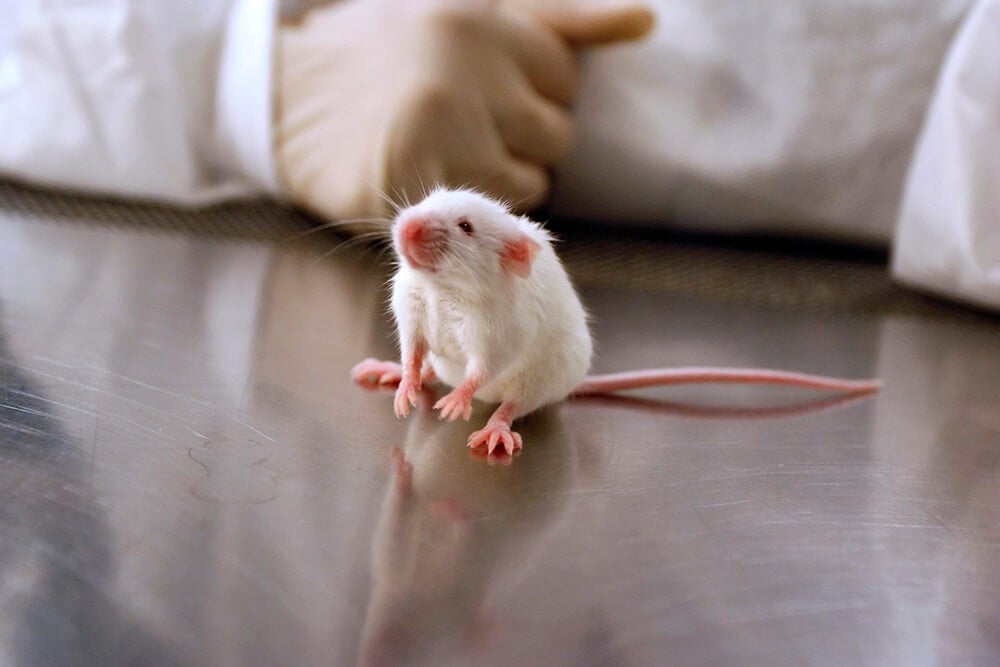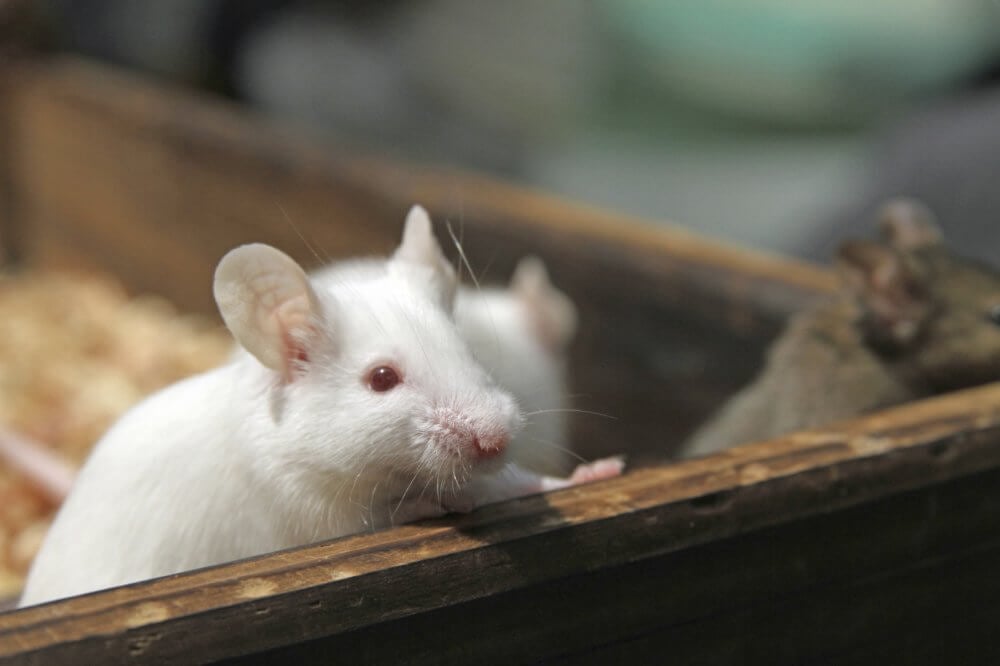More Scientists Acknowledge That Animal Tests Fail Human Patients
Sure, humans, mice, and rats all have consciousness, value their lives, and have the ability to feel pain and experience joy. But human physiology is vastly different from that of mice and rats. This has led some scientists to ask the question: Why are we still dumping so much time and effort into useless animal tests?
When compared to a simple coin flip, animal experiments are five times worse at predicting the effectiveness of human clinical therapies.
What’s even worse than the fact that they’re ineffective is that the results from experiments on animals can be dangerous when applied to humans. Take, for instance, corticosteroids, which experimenters used to treat head injuries in animals. In human trials, the treatment actually increased deaths in newborn babies.
Why is this? As Thomas Hartung—a toxicologist at Johns Hopkins University—told Cosmos, “There are lots of reasons why, but in essence we are not 70 kilogram rats and we are not inbred strains.”
Inflammatory conditions are a stark example of the failure of animal tests. In 150 trials of inflammation-blocking agents that worked in animals, not one worked for human patients. A groundbreaking study coauthored by Stanford University researcher Ronald Davis found out why. When he and his colleagues compared the ways in which mouse and human genes react to inflammation caused by trauma, burns, or bacterial toxins, they found almost no genetic responses that matched up.
“We can cure cancer in mice pretty effectively, but the agents don’t work in humans in most cases,” Davis told Cosmos. “These are complicated diseases and we live far longer than mice and evolutionarily we are far apart.”
Recently, scientists discovered a new type of brain cell that is present in humans but not in mice. Researchers note that this could be one reason why experimental brain disease treatments, such as those for Alzheimer’s, have worked in mice but failed dismally in humans.
Reacting to the study, Joshua Gordon, director of the National Institute of Mental Health, said, “It may be that in order to fully understand psychiatric disorders, we need to get access to these special types of neurons that exist only in humans.” He added that when it comes to cells that are unique to humans, “I think it’s very, very likely that this is the tip of the iceberg.”
Ed Lein, one of the researchers whose work led to the discovery of the brain cell, says the finding “throws some doubt on the ability to use the mouse to study certain elements of human function and disease.”
How can the experience of a different species living in an artificial reality even compare to the human experience?
Human lives are rich with countless variables. Unlike animals used in experiments, we’re able to exercise free will and make choices, such as whom to mate with, where and when to sleep, and whether to leave our homes or stay inside them. But the ability to make choices is taken away from animals imprisoned inside laboratories—animals who are capable of experiencing anxiety, depression, and loneliness, just like us.
Former animal experimenter Garet Lahvis, a neuroscientist, criticized the practice of using rats and mice in tests because of the artificial environments in which these animals are imprisoned. “[A]nimals [in laboratories] are not allowed to enjoy the bodies they possess,” he wrote in an op-ed. He added that caged, controlled animals react differently to stimuli than their counterparts living in natural habitats do. He became so disillusioned with animal experimentation that he closed down his mouse laboratory at Oregon Health & Science University.
The evidence is mounting that experiments on animals are useless in addition to being cruel.
Speak Out Against Cruel, Wasteful Animal Tests
At the University of Delaware, experimenter Tania Roth conducts cruel tests on vulnerable, sensitive rats, claiming to study child abuse.
These experiments are irrelevant to human health but continue to receive public funding using your tax dollars. Click the button below to demand that the National Institute of Child Health and Human Development stop funding Roth’s experiments:



